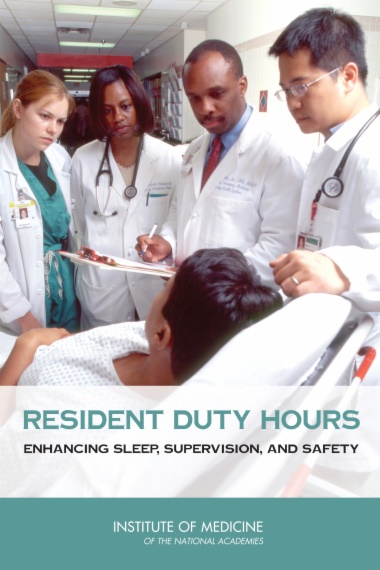

Medical residents in hospitals are often required to be on duty for long hours. In 2003 the organization overseeing graduate medical education adopted common program requirements to restrict resident workweeks, including limits to an average of 80 hours over 4 weeks and the longest consecutive period of work to 30 hours in order to protect patients and residents from unsafe conditions resulting from excessive fatigue.
Resident Duty Hours provides a timely examination of how those requirements were implemented and their impact on safety, education, and the training institutions. An in-depth review of the evidence on sleep and human performance indicated a need to increase opportunities for sleep during residency training to prevent acute and chronic sleep deprivation and minimize the risk of fatigue-related errors. In addition to recommending opportunities for on-duty sleep during long duty periods and breaks for sleep of appropriate lengths between work periods, the committee also recommends enhancements of supervision, appropriate workload, and changes in the work environment to improve conditions for safety and learning.
All residents, medical educators, those involved with academic training institutions, specialty societies, professional groups, and consumer/patient safety organizations will find this book useful to advocate for an improved culture of safety.